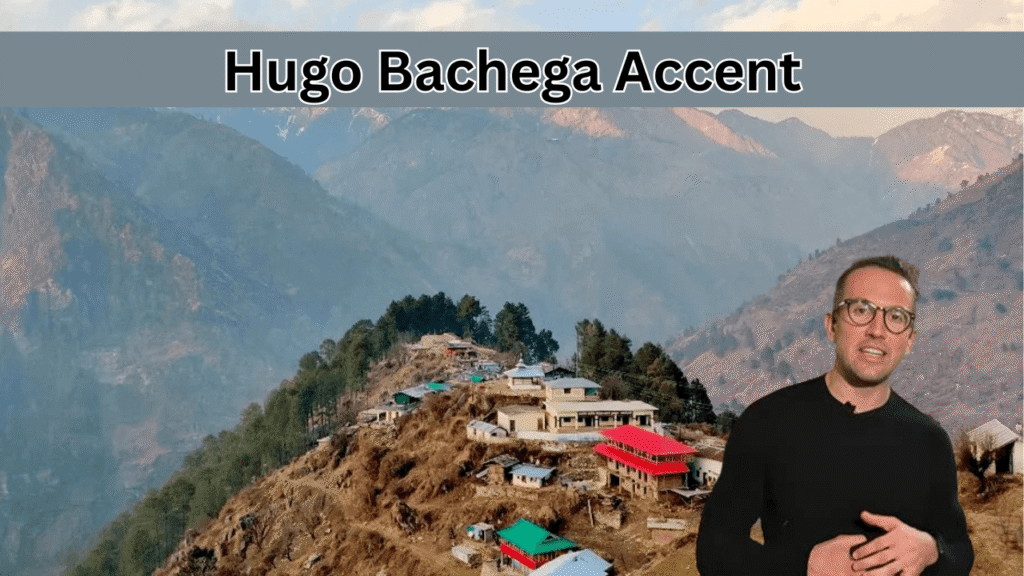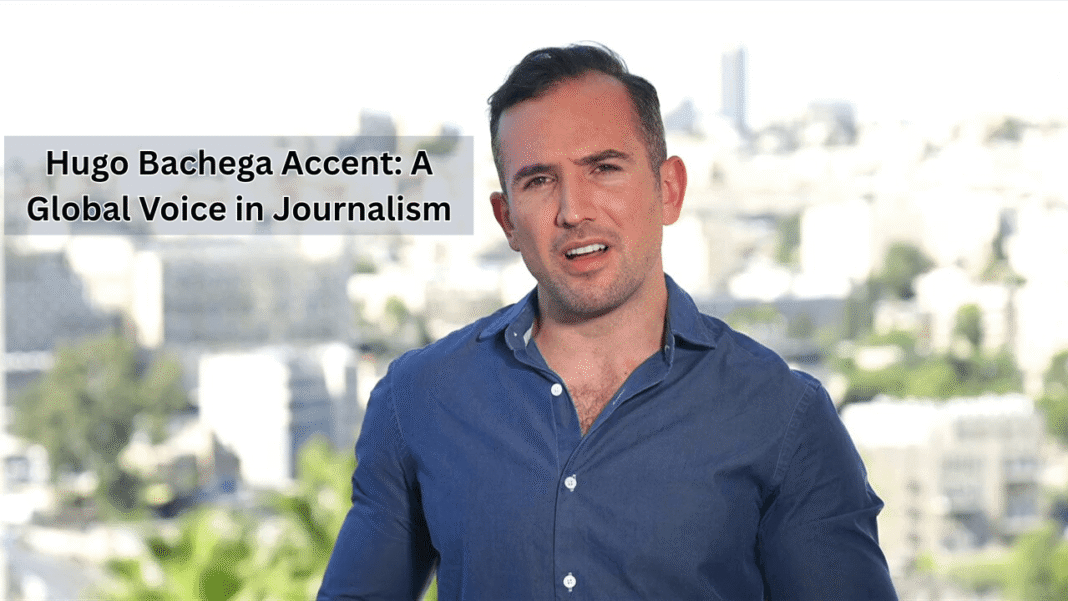You ever hear a voice that just makes you stop and think — where is this guy from? That’s exactly what happens when you tune in to international journalist Hugo Bachega. His reporting is sharp, informed, and fearless, but it’s his voice — that Hugo Bachega accent — that really leaves a lasting impression. Not quite British, not entirely Brazilian — it’s a distinctive sound that reflects a life lived across borders and a career rooted in global storytelling.
Let’s unpack what makes the Hugo Bachega accent so captivating — and why it matters more than you might think.
Who Is Hugo Bachega, Anyway?
Before we zoom in on the Hugo Bachega accent, let’s talk about the man behind the voice. Hugo Bachega is a seasoned international journalist originally from Brazil. He’s carved out a career most reporters dream about — on the ground in high-stakes conflict zones, reporting for the globally recognized BBC, and bringing clarity to some of the world’s most complicated stories.
Born and raised in Brazil, Bachega cut his teeth in journalism on his home turf. But it didn’t take long before he stepped onto the global stage. With a deep understanding of international politics and a calm, clear delivery, he’s become a trusted name in news — particularly in places where getting the story right can make a world of difference.
The Hugo Bachega Accent: A Fusion You Won’t Forget
Let’s talk about that voice. The Hugo Bachega accent isn’t something you can neatly label. It’s not your typical British broadcast tone, nor is it a full-on Brazilian Portuguese lilt. Instead, it’s a rich fusion — a little Brazil, a little Britain, and a whole lot of global experience.
Raised speaking Portuguese, Bachega carries that rhythm and warmth in his speech. But years of reporting in English-speaking environments, especially for the BBC, have added a distinctly British layer to his accent. The result? A unique sound that doesn’t quite fit any box — and that’s exactly what makes it powerful.
For many audiences, the Hugo Bachega accent stands out because it feels familiar yet different. It speaks to a multicultural world, where identity isn’t confined to borders. In journalism, that kind of authenticity goes a long way.
Why the Hugo Bachega Accent Matters in Journalism
Here’s the thing: in journalism, how something is said can be just as important as what is said. The Hugo Bachega accent isn’t just a quirk — it’s an asset.
Accents carry meaning. They reflect where we come from, who we are, and how we connect. For Bachega, his accent tells the story of a journalist who’s lived — and reported — in multiple cultural contexts. It adds a human layer to his reporting that audiences around the world can relate to.
At a time when media trust is shaky and people crave authenticity, the Hugo Bachega accent becomes more than a sound. It becomes a bridge — connecting cultures, adding depth, and delivering news with a human touch.

Language Fluency and Multilingual Power
Now, let’s not forget the muscle behind that accent: language mastery. Hugo Bachega isn’t just switching between accents — he’s fluent in both Portuguese and English. That’s a huge advantage in the field, where being able to communicate with a diverse range of people isn’t just helpful — it’s essential.
When Bachega speaks, he’s pulling from a deep well of linguistic and cultural understanding. That means more accurate reporting, better interviews, and a sensitivity to nuance that not every journalist can bring to the table. The Hugo Bachega accent, in this way, is a symbol of more than identity — it’s a signal of skill.
The Public Fascination with the Hugo Bachega Accent
It’s no surprise that the Hugo Bachega accent gets people talking. Flip through social media or scroll down to the comments section, and you’ll find viewers curious about where he’s from, how his accent developed, or even trying to imitate it.
That curiosity is a good thing. It means people are listening. In a media landscape saturated with cookie-cutter presentation, the Hugo Bachega accent reminds us that real voices — with history, culture, and complexity — still stand out.
And while some viewers may need a moment to adjust, many find his voice refreshing. It’s proof that journalism doesn’t need to sound one way to be effective. In fact, being different might just be what keeps you memorable.
A Symbol of Cultural Representation
Here’s a big one: representation. The Hugo Bachega accent doesn’t just reflect him — it reflects a much broader truth. That journalists don’t need to come from London, New York, or Sydney to make a global impact.
Bachega brings a Brazilian perspective to international journalism — and his accent reinforces that background. In an industry often dominated by Western voices, hearing someone like Hugo is a reminder that the world is watching — and deserves to see itself reflected in the news.
His presence, and his voice, push back against the idea that there’s a “correct” way to sound on the air. The Hugo Bachega accent is part of a growing movement toward inclusion in media — where diverse voices aren’t just accepted, they’re celebrated.
Digital Media and the Rise of the Global Accent
Thanks to the digital age, the Hugo Bachega accent is no longer limited to live TV or radio. Clips, interviews, and reports are shared across platforms in seconds — reaching millions globally. And with that exposure comes recognition — and conversation.
Audiences now interact with journalism in more personal ways. They comment, they share, they ask questions. That makes features like the Hugo Bachega accent not just notable — but part of the media experience.
In fact, Bachega’s accent might be helping to normalize more diversity in how news is presented. As the media world shifts, accents like his are no longer outliers — they’re leaders.
Final Thoughts: The Hugo Bachega Accent as a Journalistic Superpower
So let’s wrap it up. The Hugo Bachega accent isn’t just a topic of curiosity — it’s a reflection of everything that makes journalism powerful today: global perspective, authenticity, representation, and trust.
Bachega’s voice tells a story — of Brazil, of Britain, of conflict zones and international headlines. It’s the sound of someone who’s been there, seen it firsthand, and come back with the truth. And in a world flooded with noise, that’s the kind of voice we need more of.
In the world of impactful storytelling, voices like Hugo Bachega’s inspire global audiences. Similarly, discover the remarkable journey of Sherry Batliwala, whose life, career, and family legacy offer a powerful narrative of resilience, leadership, and influence across generations.
So next time you hear that smooth, cross-continental Hugo Bachega accent reporting from somewhere in the world — listen closely. It’s more than just an accent. ,experience, connection. It’s journalism at its most human.



